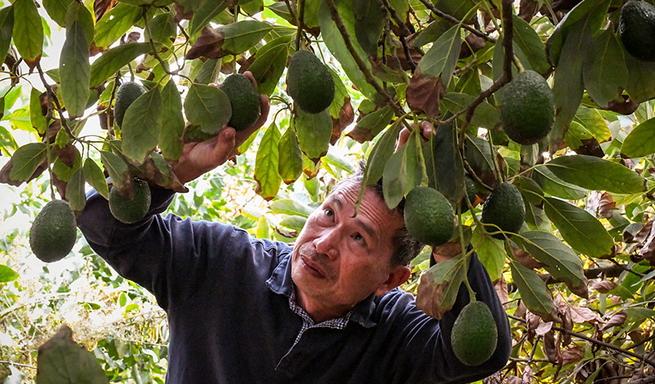Healthy, nutritious food is critical for people of all ages, but children in particular need proper nutrition to stay healthy and thrive. When good nutrition begins in early childhood, it can set the foundation for healthy eating habits and knowledge.
Unfortunately, thousands of children and adults from historically under-resourced, or disadvantaged, communities don’t have access to healthy, sustainably grown and culturally appropriate food due to decades of discriminatory policies.
Defining Food Sovereignty
To understand the role of food sovereignty in traditionally underserved communities, we must define it. According to the U.S. Food Sovereignty Alliance, food sovereignty is “the right of peoples to healthy and culturally appropriate food produced through ecologically sound and sustainable methods, and their right to define their own food and agriculture systems.”
The definition continues to emphasize centering the needs of people who produce, distribute and consume food in our food systems and policies, as opposed to markets and corporations.
In a time when the privilege of affluent communities means easy access to healthy food in local organic markets and backyard gardens, many low-income communities continue to struggle with a range of sustenance issues from food insecurity – not knowing where your next meal will come from – to food sovereignty.
Going Beyond Access to Food
Food sovereignty goes beyond ensuring people in a community have enough to eat. It’s about giving people in the community the power to provide or grow food on their own land and improve the relationship between food providers and consumers. For true food sovereignty, the U.S. Food Sovereignty Alliance underscores that we need to “put the right to sufficient, healthy and culturally appropriate food for all at the center of food, agriculture, livestock and fisheries policies.”
Food sovereignty is much larger in scope than the food security of a community. According to Food Secure Canada, food security “is concerned with the protection and distribution of existing food systems,” while food sovereignty, “is rooted in grassroots food movements that highlight the needs for a democratic food system, one that involves inputs from citizens as well as producers.”
The Importance of Food Sovereignty
While the corporate food industry continues making huge profits, a growing number of families struggle to find a meal and/or produce food on their own land. Instead of a market-driven approach to food, food sovereignty focuses on the people and communities over profits.
Unlike the corporate food industry, food sovereignty values all those who grow, harvest and produce food. The idea also supports localized food systems and gives the local community control over their own land and natural resources for producing and selling food – including avoiding toxins and chemicals that could affect the integrity of their food.
When viewed through the lens of racial justice, food sovereignty can also eliminate inequities in the food system, such as health outcomes.
Food Sovereignty in Practice
Some of the ways communities implement food sovereignty include:
- Community Food Projects – Growing, distributing and consuming food locally means fresher, more nutritious foods, which sustains the local economy and puts control of food production and distribution back into the hands of community members.
- Community Gardens – Community gardens provide an important gathering place for people, while experiencing health benefits and learning valuable skills in gardening and entrepreneurship.
- Farmers Markets – Farmers markets can reduce transportation costs and allow farmers to earn more while consumers pay less for healthy, nutrient-rich organic foods.
- Food Banks/Pantries – Stocking food pantries with local, culturally appropriate foods can be a steppingstone for families to access healthy food.
San Diego’s Food System
Since the start of the COVID-19 pandemic, The San Diego Foundation has worked with local partners to provide food assistance through the San Diego COVID-19 Community Response Fund. Additionally, we’ve worked with local partners to increase awareness of food insecurity and hunger in our region and raise awareness of inequities in our local food system.




